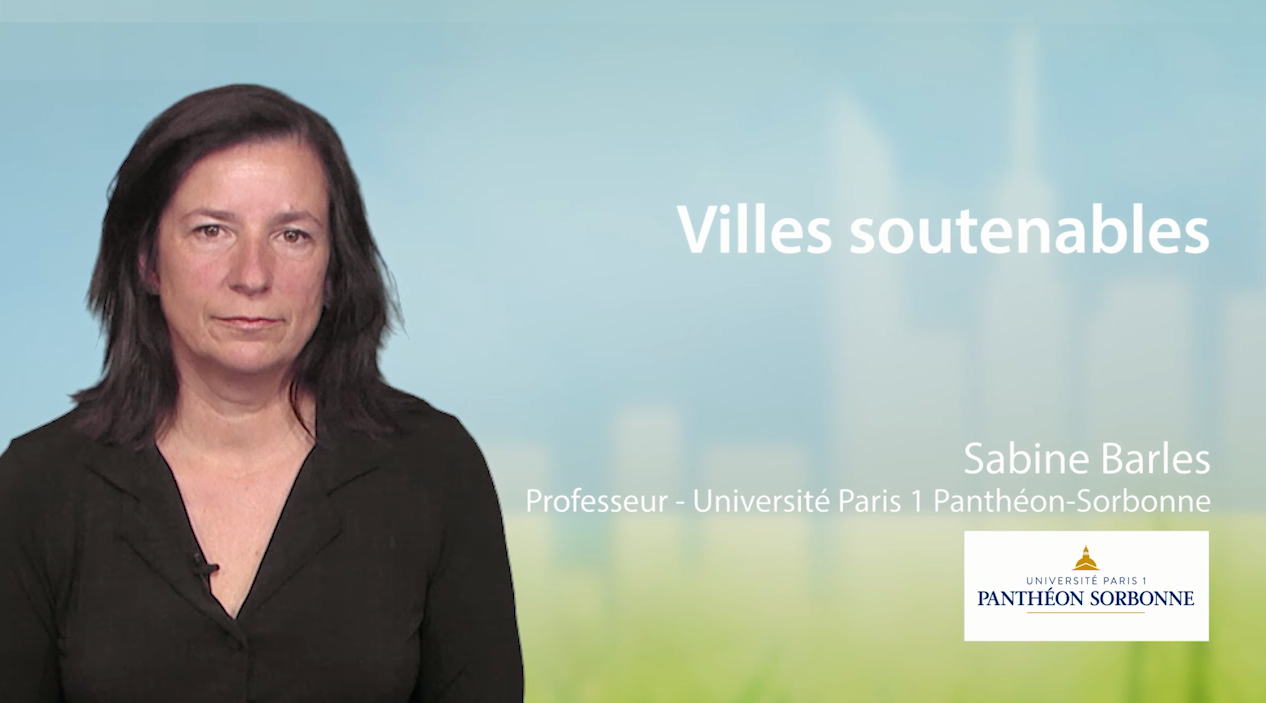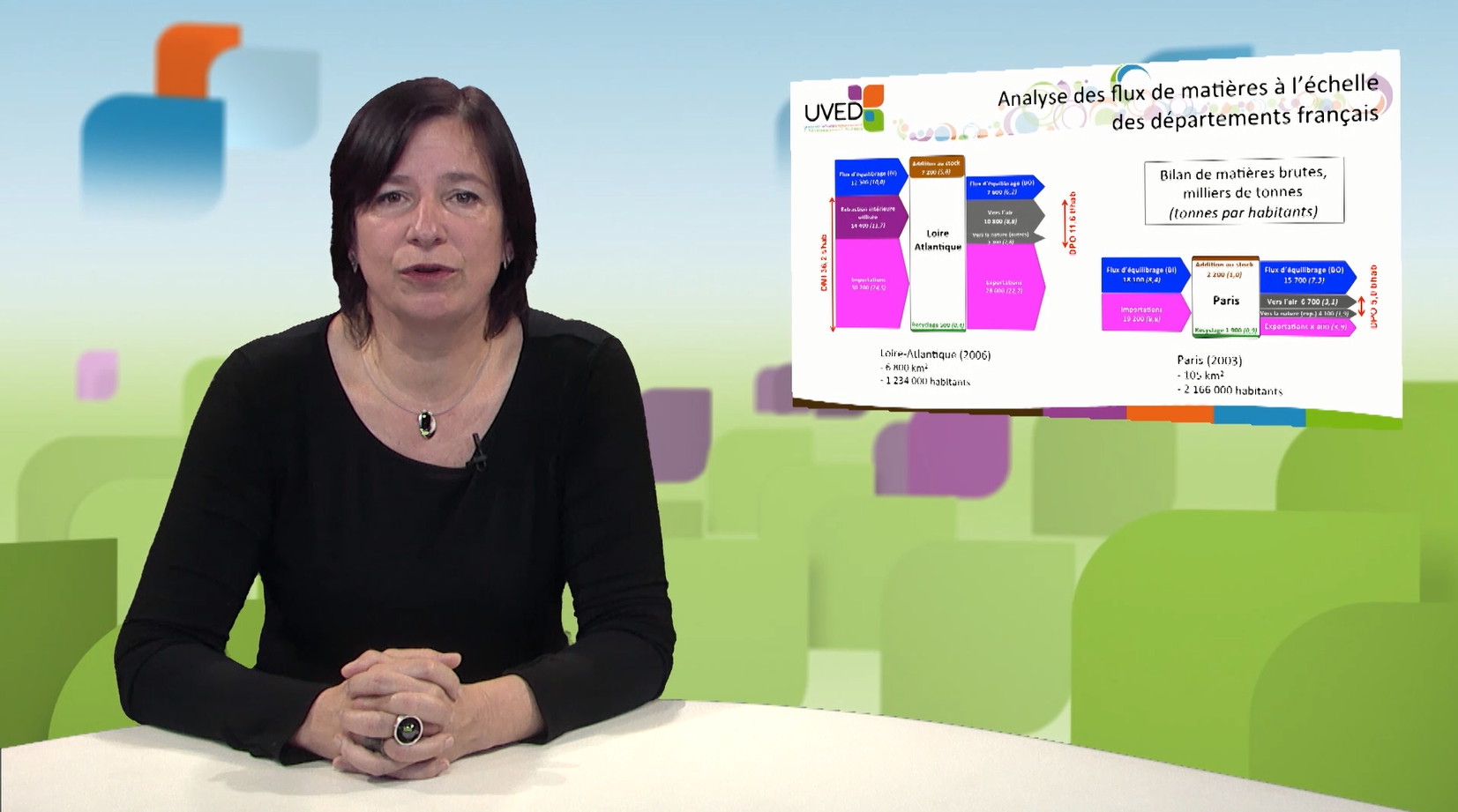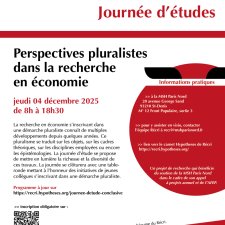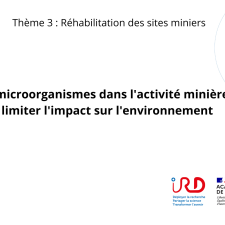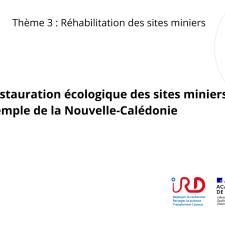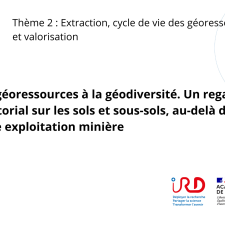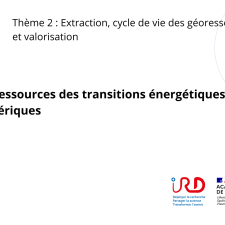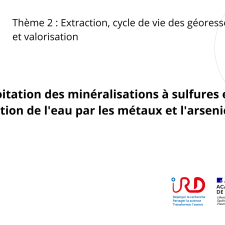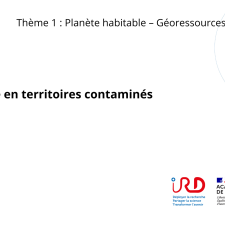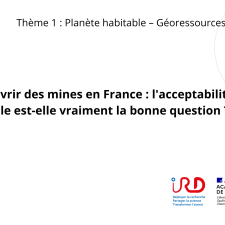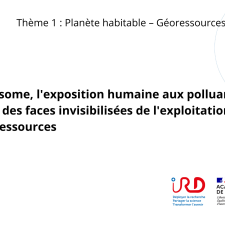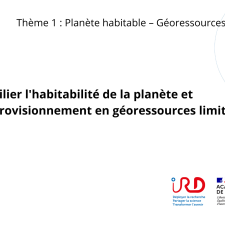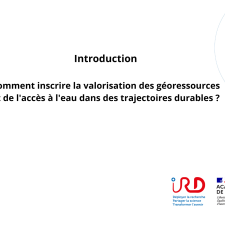Notice
Key sectors for dematerialization
- document 1 document 2 document 3
- niveau 1 niveau 2 niveau 3
Descriptif
On the basis of a sectoral analysis of the internal consumption of materials in the "Ile de France" and "Loire Atlantique" regions, Sabine Barles, Professor of urban planning and development at the University of Paris 1 Panthéon-Sorbonne and researcher at the UMR Geographie-Cités, presents the sectors that should be targeted as a priority for dematerialization.
Dans la même collection
-
The nitrogen cycle in Paris
BarlesSabineSabine Barles, Professor of urban planning and development at the University of Paris 1 Panthéon-Sorbonne and researcher at the UMR Géographie-Cités, presents the nitrogen balance of the Paris
-
Disturbances in the nitrogen cycle and related impacts
BarlesSabineSabine Barles, Professor of Urban Planning and Development at the Université Paris 1 Panthéon-Sorbonne and researcher at the UMR Géographie-Cités, discusses the origin and extent of anthropogenic
-
An analysis of material flows in France
BarlesSabineSabine Barles, Professor of Urban Planning and Development at the Université Paris 1 Panthéon-Sorbonne and researcher at the UMR Géographie-Cités, describes the metabolism of France in 2010, and in
-
The environmental footprint explained through the example of Paris
BarlesSabineSabine Barles, Professor of Urban Planning and Development at the University of Paris 1 Panthéon-Sorbonne and researcher at the UMR Géographie-Cités, presents the supply of food nitrogen in Paris,
-
The metabolism of territories : challenges and key notions
BarlesSabineSabine Barles, Professor of Urban Planning and Development at the Université Paris 1 Panthéon-Sorbonne and researcher at the UMR Géographie-Cités, introduces the notion of territorial metabolism,
Avec les mêmes intervenants et intervenantes
-
El metabolismo de los territorios: retos y conceptos clave
BarlesSabineEn este vídeo, Sabine Barles, profesora de urbanismo-ordenación en la Université Paris 1 Panthéon-Sorbonne, introduce la noción de metabolismo territorial delimitando claramente el empleo de estos
-
Analisis del flujo de materias en Francia
BarlesSabineSabine Barles, profesora en la Université Paris 1 Panthéon Sorbonne describe en este vídeo el metabolismo de Francia en 2010, y en particular los flujos entrantes, los flujos salientes y las
-
El ciclo del nitrógeno en París
BarlesSabineSabine Barles, profesora en la Université Paris 1 Panthéon Sorbonne, presenta en este vídeo el balance de nitrógeno de la aglomeración parisina destacando los flujos entrantes y salientes. También
-
The nitrogen cycle in Paris
BarlesSabineSabine Barles, Professor of urban planning and development at the University of Paris 1 Panthéon-Sorbonne and researcher at the UMR Géographie-Cités, presents the nitrogen balance of the Paris
-
Disturbances in the nitrogen cycle and related impacts
BarlesSabineSabine Barles, Professor of Urban Planning and Development at the Université Paris 1 Panthéon-Sorbonne and researcher at the UMR Géographie-Cités, discusses the origin and extent of anthropogenic
-
An analysis of material flows in France
BarlesSabineSabine Barles, Professor of Urban Planning and Development at the Université Paris 1 Panthéon-Sorbonne and researcher at the UMR Géographie-Cités, describes the metabolism of France in 2010, and in
-
The environmental footprint explained through the example of Paris
BarlesSabineSabine Barles, Professor of Urban Planning and Development at the University of Paris 1 Panthéon-Sorbonne and researcher at the UMR Géographie-Cités, presents the supply of food nitrogen in Paris,
-
The metabolism of territories : challenges and key notions
BarlesSabineSabine Barles, Professor of Urban Planning and Development at the Université Paris 1 Panthéon-Sorbonne and researcher at the UMR Géographie-Cités, introduces the notion of territorial metabolism,
-
EN-3. Sustainable cities
BarlesSabineSabine Barles presents the issues associated to the sustainable city. She firstly talks about internal issues, linked to the city metabolism, to the urban nature and to the ecological inequalities.
-
3. Villes soutenables
BarlesSabineDans cette vidéo, Sabine Barles présente les enjeux associés à la ville soutenable. D'une part les enjeux internes, liés au métabolisme de la ville, à la nature en ville, et aux inégalités écologiques
-
Le métabolisme des territoires : quelques perspectives
BarlesSabineSabine Barles clarifie le lien qui existe entre l'analyse du métabolisme des territoires et l'écologie territoriale. Elle souligne l'importance de prendre en considération, à côté de cette approche
-
L'analyse des flux de matières à l'échelle des départements français
BarlesSabineSabine Barles décrit le métabolisme de deux régions : Paris et la Loire-Atlantique. Elle analyse pour chacune d'entre elles les flux entrants, les flux sortants, ainsi que les additions au stock. Sur
Sur le même thème
-
Journée d’étude | Récri : Perspectives pluralistes dans la recherche en économie - PARTIE 1
MofakhamiMaloMéryFlorianAu cours de ces bientôt deux ans de séminaire, les séances mensuelles du Récri ont été l’occasion de mettre en évidence la diversité et la richesse des recherches en économie menées par des jeunes
-
Journée d’étude | Récri : Perspectives pluralistes dans la recherche en économie - PARTIE 2
TailleurGabrielMalherbeLéoCastelanelliBenjaminRosano-GrangeMarlèneRosElodieGononMorganeTosoliniMarionBétouleAliceGrangerayJonasBouffangeAlbertAu cours de ces bientôt deux ans de séminaire, les séances mensuelles du Récri ont été l’occasion de mettre en évidence la diversité et la richesse des recherches en économie menées par des jeunes
-
Des microorganismes dans l’activité minière pour limiter l’impact sur l’environnement
BruneelOdileLa conférence présente un état des lieux de l'importance des micro-organismes pour tenter de limiter l'impact de l'activité minière sur l'environnement, avec les avantages et les inconvénients de ces
-
La restauration écologique des sites miniers. L'exemple de la Nouvelle-Calédonie.
PillonYohanLa présentation démarre par une introduction aux grands concepts dans le restauration écologique et ses enjeux dans un contexte minier. Les procédés mis en œuvre sont présentés sur un exemple : la
-
Des géoressources à la géodiversité. Un regard territorial sur les sols et sous-sols, au-delà de la…
ScammaccaOttoneLe concept de « géodiversité », pendant non-vivant de la biodiversité, vise à renouveler le regard porté sur la nature. Cette présentation met l’accent sur ce nouveau paradigme – en montrant un
-
Les ressources des transitions énergétiques et numériques.
Van LichterveldeMariekeLa transition énergétique nous promet une sortie des énergies fossiles grâce à l’électrification massive. Mais l’extraction galopante des métaux nécessaires à cette transition pose de nombreux
-
Exploitation des minéralisations à sulfures et pollution de l'eau par les métaux et l'arsenic.
CasiotCorinneLa conférence a pour thème l’exploitation des minéralisations à sulfures qui engendre des pollutions de l’environnement et de l’eau en particulier. Les phénomènes chimiques à l’œuvre sont explicités.
-
Vivre en territoires contaminés.
BecerraSylviaLa présentation propose un "toxic-tour" de sites contaminés dans des pays du sud, entre territoires miniers, pétroliers et de pollutions urbaines. Elle se centre sur les impacts sociaux
-
Rouvrir des mines en France : l’acceptabilité sociale est-elle vraiment la bonne question ?
CerceauJulietteDans le cadre de la transition énergétique, des projets de réouverture de mines en France hexagonale voient le jour et interrogent les populations. La conférence revisite la question de l
-
Exposome, l'exposition humaine aux polluants : l’une des faces invisibilisées de l'exploitation des…
MauriceLaurenceL’exposome correspond à l’ensemble des expositions environnementales auxquelles vous êtes soumis tout au long de votre vie, via votre alimentation, l’air que vous respirez, les rayonnements qui vous
-
Concilier l'habitabilité de la planète et l'approvisionnement en géoressources limitées
LevardClémentLa conférence porte sur la consommation croissante et diversifiée de minéraux par rapport à leur disponibilité sur Terre, le numérique jouant un rôle majeur. Il existe des leviers pour diminuer la
-
Comment inscrire la valorisation des géoressources dans des trajectoires durables
MauriceLaurenceLes économies tentent de réduire plus ou moins efficacement leurs émissions de carbone en développant des énergies dites « renouvelables ». Cependant, les politiques de décarbonation augmentent, de










